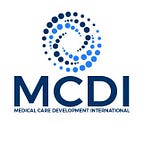Towards Elimination: Bioko Island as the World’s Stage for a New Malaria Vaccine
Bioko Island, Equatorial Guinea, is playing an important role in the world of malaria research for an island roughly half the size of Rhode Island: it has been the home of the acclaimed Bioko Island Malaria Control Project (BIMCP) since 2004, and has been the home of the Equatoguinean Malaria Vaccine Initiative (EGMVI) since 2014. A series of FDA clinical trials and scientific research capacity building efforts are transforming Equatorial Guinea into a proving ground for a vaccine that could accelerate the world’s elimination of malaria. An effective vaccine would be a game-changer.
The EGMVI, carried out by the Equatorial Guinea Ministry of Health and Social Welfare, MCDI, Sanaria Inc., Ifakara Health Institute and the Swiss Tropical and Public Health Institute, has conducted the first trial and is nearing completion of a second trial of Sanaria Inc.’s PfSPZ Vaccine on Bioko. The vaccine is designed to confer long-lasting, sterile protection against blood-stage infection with Plasmodium falciparum, which is the most common and deadly species of malaria. It consists of whole malaria sporozoites (SPZ) weakened by radiation. An efficacious PfSPZ Vaccine will help to protect those most vulnerable to infection, and will also allow for the elimination of the parasite in areas with high vaccination because it blocks transmission.
PfSPZ Vaccine has proven highly effective and safe in past studies in the United States, Europe and African countries. Results published in the American Journal of Tropical Medicine & Hygiene and disseminated at a national symposium on vaccination held in Malabo in Bata in October on the first trial of the PfSPZ Vaccine in Equatorial Guinea established its preliminary safety, tolerability and moderate ability to produce an immune response in healthy 18 to 35 year-old male Equatoguineans living in an area with low malaria exposure.
The second study currently underway on Bioko Island expands on these findings to further test the immunogenicity and protective efficacy of PfSPZ Vaccine in an expanded population, including older adults, women, children, and infants. This trial includes a comparison with PfSPZ-CVac, a novel, potent approach to malaria immunization that uses live, aseptic, purified sporozoites not weakened by radiation. It is administered after volunteers have taken a prophylactic antimalarial drug. This product has been administered to study volunteers for the first time side-by-side with PfSPZ Vaccine. In a clinical trial in Germany, the CVac approach was shown to confer 100% protection of nine human subjects against malaria for 10 weeks. The results of the PfSPZ-CVac study on Bioko Island will be important coming from a malaria-endemic country, to determine whether this or the PfSPZ Vaccine could be used in progressive vaccination implementation trial across the island in the next six years.
Whereas these have been the first two FDA clinical trials in Equatorial Guinea’s history, MCDI had to lay the groundwork to ensure ethical and stable research conditions. The EGMVI has provided world-class training for Equatoguinean clinical and laboratory staff, and MCDI in particular has established the administrative and logistical procedures for such trials in the country, clearing the path for future clinical research in Equatorial Guinea.
In an unprecedented fashion, the Government of Equatorial Guinea has been covering 75% of the cost of the vaccine trials, in a region where such government investment in scientific research is rare. The next milepost for the EGMVI will be to integrate a vaccine tool with malaria control efforts, with the vaccine expected to tip the scale in favor of malaria control in order to eliminate the disease on Bioko Island. Elimination would be historic for such an area with high malaria transmission.
The potential replication of malaria prevention and control programs in conjunction with vaccination is a potential pathway to malaria elimination in highly endemic countries across sub-Saharan Africa and other malaria-endemic regions of the world. With its generous support for health sciences research and development, Equatorial Guinea is quickly becoming an epicenter of innovation in fighting one of the world’s most deadly infectious diseases.
